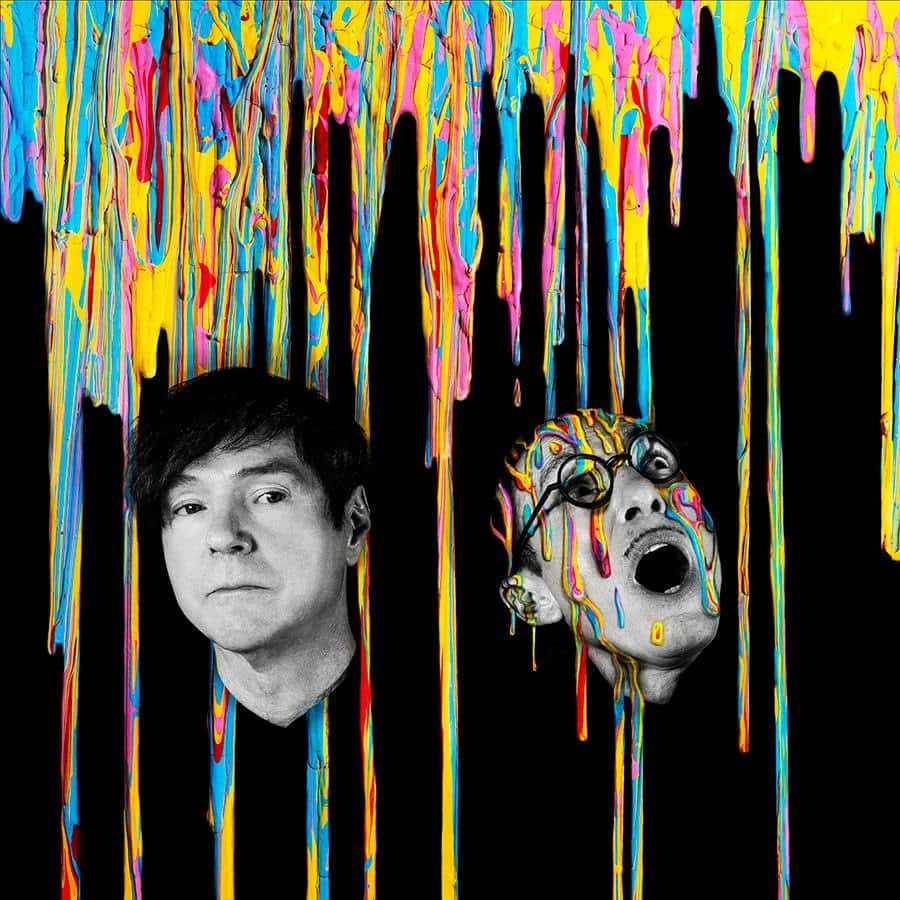'A Steady Drip, Drip, Drip' Review: Synthpop pioneers Sparks return with another quirky, trippy & moving album

With a legacy that spans over five decades, 23 studio LPs, and thousands of breathtaking shows, the synthpop duo Sparks have resurfaced with 'A Steady Drip, Drip, Drip' this weekend. Having inspired countless iconic artistes in their wake, including Depeche Mode, Faith No More, Nirvana, The Smiths, and Bjork thanks to their brilliantly quirky, timeless music, the brothers Ron & Russell Mael are back once again with their 24th studio album.
“We're always re-convincing people over and over again,” Sparks vocalist Russell Mael once claimed in 1983, and in truth, these synthpop pioneers have always effortlessly delivered the goods in an industry where even celebrated pop artistes have struggled to stay relevant. Considered as outliers even by pop music's broad standards, Sparks have become cult figures thanks to their signature blend of witty and surreal musical perspectives, ranging from electronic to orchestral tunes.
Elder brother Ron Mael, the principal songwriter and lyricist of Sparks is a pop culture icon thanks to his trademark eye swivel, which would culminate in a mock death stare, all while laying down mystical lines on the keyboard. His younger brother Russell's unique voice was just as iconic - he could chant ominously, screech violently, and charm us with his sublime falsettos. As a songwriter, Ron Mael loved taking a minor human situation and blowing it up, both lyrically and musically, to the point of preposterousness and frivolity.
Thanks to their wit, innovation, and staying power, Sparks are a distinct listening experience that is unlike any other, earning them a devoted fan following worldwide.

Besides inventing the often-copied synth-duo format, Sparks have also reinvented themselves at every turn. They pioneered art rock along with Roxy Music in the '70s and went to explore electronic disco later that decade. They went on to finesse new wave pop in the '80s, embraced techno & euro-pop in the '90s, and even rewrote arrangements for their back catalog before the new millennium.
The 21st century saw them pioneer electronic opera, write a radio musical, and collaborate with Franz Ferdinand. Alex Kapranos, the frontman of Franz Ferdinand revealed, "After a few listens you really get into it. Then you really fall in love... Now I can't imagine life without them".
The new album opens with 'All That', a bright yet wistful sing-along anthem reminiscent of the Beatles meets Pink Floyd. "All that we've done / We lost, we won / All that, all that and more", they chant as runaway saxophone lines unfurl over lush acoustic guitars and handclaps. For an act that has endured in a league of its own with an ever-evolving work ethic, the lyrics could well be a conversation between the two talented brothers.
'I'm Toast' is an '80s inspired rollercoaster with a galloping vibe in the choruses and a prodding intensity in the verses. "Alexa, get me out of this place" croons Russell as he summarizes his descent into a labyrinth of unanswered questions while he searches for a way out.
'Lawnmower' is a surreal and catchy song that sees an ascending etude looped into saturation. "Your lawn will be a show stopper / Your lawn will be a jaw dropper" chants Russell in this hilarious tale of lawns, lawnmower, and the people that own them.
'Sainthood Is Not In Your Future' is a medley of dance music and synth-pop that juxtaposes acoustic guitar rhythms with a sequencer-driven bassline and David Bowie-esque vocals. The end effect is a trance-inducing masterclass from the Maels. The song may well be a reminder to all artistes that sainthood is actually about delivering the goods every time and still keeping new listeners engaged.
Sparks continue to captivate with 'Pacific Standard Time', a mesmerizing song about their native time zone - "Pacific Standard time / What's mine is yours / What's yours is mine". The song is trippy with a Pink Floyd vibe, with Ron's synthesizer work being the icing on the cake. Russell employs both falsettos and regular vocals in this lush aural treat that sees strings colliding with the pulsing piano groove like a massive wave in the Pacific Ocean.
When the composer Stravinsky first debuted 'Rite of Spring', it was famously met with absolute bewilderment. He would definitely approve of the quirky 'Stravinsky's Only Hit' by Sparks, however. The track hilariously recounts Stravinsky's musical troubles in a nod to the Russian composer's dexterity with thought-provoking orchestral arrangements.

'Left out in the Cold' is a wistful song with a distinct '90s vibe. The repeated refrain "I've been left out in the cold" is complemented by a steady groove, humming violins, mournful piano, and processed vocals, making for an extremely dance-worthy hit.
Brilliantly steeped in razor-sharp wit and seasoned with a comically stoic vocal delivery, 'Self-effacing is a song that throws together pop-punk aesthetics with Russell's staccato delivery. "Compliments come / But my rule of thumb / Is under duress / Say all my success / Is all due to them / On them I depend," goes this cheery ode to self-depreciation.
'One For The Ages', sees Ron Mael in fine form as the piano and synthesizer take center stage in this '80s disco-centric track. A stabbing bass line running in tandem with the grooving drums gives the song a steady pulse, which is accentuated by the sequenced synth lines.
'Onamata Pia' (a pun on onomatopoeia) is a poppy song with lots of orchestral arrangements and grand string section passages. The throbbing synthesizer makes a return while giving way to breakdowns where the brothers mess around with song structure brazenly and gleefully.
For those who wondered what these 70-year-olds would have to say about new technology, the Mael brothers are letting you know on 'iPhone'. Employing polysynth sounds reminiscent of gaming arcades along with a marching drum routine, Russell bluntly sings, “Put your fucking iPhone down and listen to me”. The brothers convey the narrator's anger stylishly and succinctly as the funky song swaggers on.
With the neo-jazzy 'The Existential Threat', the brothers talk about societal isolation and extreme paranoia in their signature whimsical style. Given the ongoing coronavirus scare, it's downright eerie that these themes are playing out right before our eyes, but the prescient Mael brothers help ease our minds with their witty lyrical jabs.
'Nothing Travels Faster Than The Speed Of Light' is a majestic and bouncy synth-driven track that casts a skeptical eye on accepted wisdom in our post-truth world. "Nothing travels faster than the speed of light, they’ll tell you but / What they’re telling you is clearly wrong" the brothers assure us, making us consider the follies and unquestioned beliefs of our modern age.
‘Please Don’t Fuck Up My World’ is the final track on the album that makes a direct appeal to spare a thought for the planet Earth. In what feels like an open, heartfelt conversation about conservation, the brothers employ a sardonic yet earnest approach as they say, "Rivers, mountains and seas / Deserts, forests and fields / No one knows what they're there for / Still, it's easy to see / That they're things to be cared for."
All things considered, this is another surreal and sublime masterpiece from Sparks. The Mael brothers incorporate jaunty melodies, with dollops of wry humor and biting social commentary, into a delightful listening experience essayed in their own inimitable style. While many a diehard fan will bemoan the fact that Sparks aren't as celebrated as Bob Dylan or the Beatles, the fact that they're still around after half a century is cause for celebration itself.










